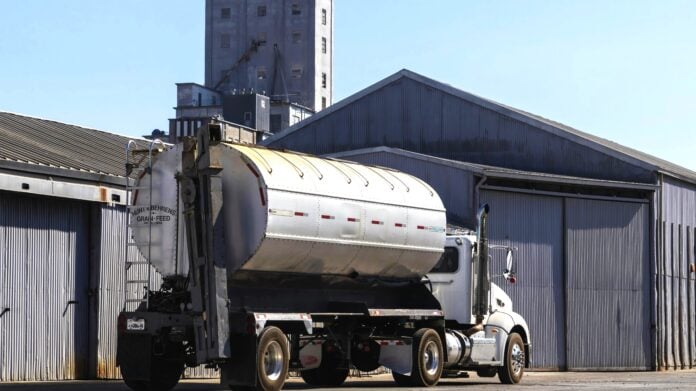
TOPEKA, Kan. (May 2, 2025) — As Kansas grapples with a critical fuel shortage and a shortage of truck drivers to deliver gasoline and diesel, Governor Laura Kelly has issued a state of disaster emergency to help keep deliveries moving. At the same time, the White House has issued a sweeping executive order that could sideline a significant portion of the commercial driving workforce by requiring strict English-language proficiency enforcement.
Governor Kelly’s order, issued April 30, suspends federal limits on driving hours for truckers transporting fuel in and through Kansas. The move comes as long lines at fuel terminals and a lack of available drivers threaten to disrupt supply chains.
“I am issuing this declaration to help alleviate the delay in getting the fuel to the end user,” Governor Kelly said. “This is not just a Kansas issue; our neighboring states are experiencing the same delays.”
The Kansas Corporation Commission followed with a temporary 14-day waiver of federal Hours of Service regulations. The Kansas Highway Patrol also confirmed it will adjust enforcement practices in support of the emergency declaration.
But while Kansas is working to add flexibility for truckers, the Trump Administration is tightening the rules—especially for non-English speaking drivers.
In an executive order issued April 28, President Trump directed the Federal Motor Carrier Safety Administration (FMCSA) to begin enforcing English-language requirements that have long been on the books but rarely applied. The order mandates that drivers who cannot communicate fluently in English must be placed out-of-service—effectively pulled off the road.
“This is common sense,” the president wrote, citing his March 1 order designating English as the official language of the United States. “Truckers must be able to read traffic signs, communicate with officers, and respond to safety instructions.”
The timing has raised eyebrows across the transportation and logistics sectors, especially in rural states like Kansas that already face a shortage of qualified drivers. Diesel deliveries are already delayed, and industry experts warn gasoline shortages could follow.
Critics argue that while the White House claims to support truckers, its actions may disproportionately affect immigrant drivers and make it harder for states like Kansas to address urgent needs.
“We’re in a situation where we need more truckers on the road, not fewer,” said one logistics analyst. “Targeting drivers based on language—especially during a fuel emergency—could make things worse.”
The Kansas executive order remains in effect for the next two weeks, but whether the state can meet its fuel delivery demands may depend in part on how the federal government’s new language policy is enforced.




